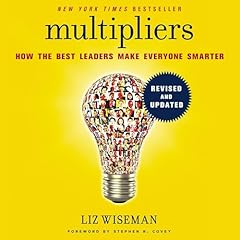
Nuclear Leadership
An ICBM Operator Splits the Leadership ATOM
No se pudo agregar al carrito
Add to Cart failed.
Error al Agregar a Lista de Deseos.
Error al eliminar de la lista de deseos.
Error al añadir a tu biblioteca
Error al seguir el podcast
Error al dejar de seguir el podcast
Obtén 3 meses por US$0.99 al mes
 Exclusivo para miembros Prime: ¿Nuevo en Audible? Obtén 2 audiolibros gratis con tu prueba.
Exclusivo para miembros Prime: ¿Nuevo en Audible? Obtén 2 audiolibros gratis con tu prueba.
Compra ahora por $17.58
-
Narrado por:
-
M.D. Omaha
-
De:
-
M.D. Omaha
For the first several thousand years of written history, humankind submitted to a variety of emperors, rulers, kings, czars, and dictators. While political empires are far less common today, this imperial leadership mind-set is deeply ingrained in our collective psyche.
Our workplaces remain filled with miniature Napoleons and Hirohitos wielding supreme power over their subordinates through authoritarian, totalitarian, overbearing, and micromanaging (ATOM) leadership practices. While effective to an extent, emperors have never been able to unlock the full potential of their kingdoms. An empire will only survive until a weak leader assumes the throne, and the kingdom falls.
Fortunately, World War II taught us a new way to defeat imperial, ATOM leaders. The nuclear weapons that forced the Japanese empire to capitulate have changed everything we know about warfare, politics, and diplomacy. These weapons harness the power of the very atoms that make up the essence of our world. Similarly, defeating our workplace ATOM leaders requires harnessing the power of an abundant natural resource: human ideas. Like the neutrons in an atomic bomb, the precise application of nuclear leadership enables an explosive chain reaction of ideas, the ultimate weapon for overthrowing a dictatorship.
Twenty-first century organizations achieve success by generating higher quality ideas with greater efficiency and in larger quantities than their competitors generate, but our natural ATOM leadership tendencies hinder innovation.
To split the ATOM, we need nuclear leaders who are fully aware of both their strengths and their limitations and who maximize the talent of those around them. We need nuclear leaders who recognize the value of all team members in the chain reaction and take proactive steps to ensure their teammates feel respected and valued. And we need nuclear leaders who make their workplace a safe, fun-loving space, while continuously offering opportunities for their teammates to grow. The philosophical shift resulting from splitting the ATOM enables ideas to ignite a chain reaction that not only shatters a company’s barriers but also has the power to change the world.
M.D. Omaha has spent over a decade in leadership positions charged with conducting intercontinental ballistic missile operations. Under the cold Montana, Wyoming, and North Dakota ground, M.D. Omaha has meticulously prepared himself and others for a battle we hope never takes place. These moments of solitude and reflection have shaped his thoughts on leadership and led to one inescapable conclusion: To succeed in the modern era, organizations must overcome our natural ATOM tendencies and, instead, equip our teams to take a new approach to leadership - nuclear leadership.
©2019 Matthew Ditson (P)2019 Matthew DitsonLos oyentes también disfrutaron:




















Good perspectives
Se ha producido un error. Vuelve a intentarlo dentro de unos minutos.
The author’s narration is everyday and ordinary. If you need a dramatic rendition, this isn’t for you. Instead, listen for the content and the personal amusement in the book. Nuclear reactions are described as spreading like a high school rumor, and contemporary movie and music references are interjected in a way that makes the topic relatable and, more importantly, achievable.
Boost or refresh your leadership skills by diving into this unique look at leaders - from the heavily guarded perspective of the US nuclear weapon arsenal.
A leadership book for the rest of us
Se ha producido un error. Vuelve a intentarlo dentro de unos minutos.
El oyente recibió este título gratis
More Relatable Than I Thought Possible!
Se ha producido un error. Vuelve a intentarlo dentro de unos minutos.


